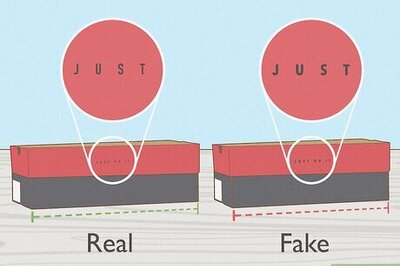
views
Much hue and cry has been raised about former Chief Justice of India (CJI) Ranjan Gogoi’s nomination to the Rajya Sabha. First, as per the law on the appointment of retired judges, here are a few facts:
- There is no provision for a cooling-off period for retired judges.
- Various parliamentary legislations have provisions for appointment of retired judges of the Supreme Court/High Court.
- Many retired judges have been appointed as chairpersons and members of the commissions, tribunals and authorities, even Governors.
- Many of the Supreme Court judges who have retired over the past decade went on to take up post-retirement jobs.
- While some were appointed as chairpersons of tribunals, one was made governor.
- Of these, at least 26 accepted government jobs while some started practising law again.
And even though the Congress and others are alleging quid pro quo citing the Ayodhya and Rafale judgments, it is important to note that these verdicts were not delivered by CJI Gogoi alone.
The Ayodhya verdict was given by a five-judge bench. Similarly, the bench that heard the Rafale petition had three judges. It is an insult to the other judges of those benches, an assault on their integrity when a quid pro quo allegation is made.
Another important point to be noted: while previous judges like Justice Ranganath Mishra and Justice Baharul Islam were elected to the legislature by the Congress, Gogoi has been nominated to the Rajya Sabha by the President of India, as one of the 12 nominated members of the Upper House. Yes, this has been ratified by the Council of Ministers, so there is a central government approval. However, Gogoi has neither joined the BJP nor has the party voted for him in an election.
There is a significant difference between elected and nominated members. Those who are elected to a House from a party are subject to the whip of that party. They are bound to vote the way the party directs them to and in general, they cannot criticise the party and the government if the party is in power.
On the other hand, a nominated member is an independent member, not subject to any party whip. Therefore, Justice Gogoi does not need to tow a particular line. The government or the BJP can do nothing.
From Justice AN Ray, Justice Hidyatullah, Justice Baharul Islam under Indira Gandhi to the likes of Justice Ranganath Mishra and V Ramaswami under Rajiv Gandhi or Justice Kolse Patil or Justice Thipsay in the Sonia Gandhi/Rahul Gandhi era, politicisation of the judiciary by the Congress and under the Congress is evident and the proof is out there.
When a judge of the court is related to a top Left Leader, it is evident. But when one of the four judges who mounted a campaign against Justice Dipak Mishra is elevated by the President, they have a problem. Justice Gogoi then was a hero as the Congress and the opposition perceived he was anti-Modi. Now his integrity is being questioned as he has been nominated by the President. The bias perhaps isn’t with Justice Gogoi or the President or this government under Prime Minister Narendra Modi, those expecting and guilty of practicing quid pro quo are the opposing voices.



















Comments
0 comment